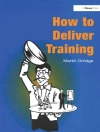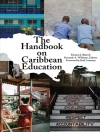‘Valuable for teachers and families. Peltz offers research-based strategies as he builds a partnership with students to challenge, inform, and encourage them.’
—Lucy C. Martin, Learning Specialist, Mc Donogh School, Owingo Mills, MD
‘All the issues and questions you have about work habits and study skills are here, along with student-friendly suggestions and ideas!’
—K. Michael Hibbard, Assistant Superintendent, Ridgefield Public Schools, CT
Partner with your students to realign their study skills and introduce new ones for success!
Addressing common defense mechanisms and rationalizations students use to avoid studying, Dear Teacher: Expert Advice for Effective Study Skills offers ready-to-use, practical responses based on proven research for middle and high school classrooms. Experienced teacher and study skills coach William H. Peltz demonstrates how to introduce and promote easy-to-understand studying techniques and specific strategies for note-taking, doing homework, and preparing for high-stakes tests and standardized assessments.
Cleverly written in a ‘Dear Abby’ format, this resource enables teachers to become partners with their students to help them:
- Enhance their ability to concentrate and focus
- Organize their work
- Manage time
- Assume responsibility for their behavior
- Become more self-reliant
This light, engaging book assists students in finding the requisite skills to succeed in school and in real-world learning experiences.
Зміст
Preface
Acknowledgements
About the Author
Part I – Overcoming Obstacles and Negative Attitudes
1. Stinkin?, Thinkin?, and Other Roadblocks
2. My Homework Is Boring
3. Who Has the Time for Homework?
4. Just Add Water – Skill Development Takes Time
5. I?m too Tired to Study
6. Get a Coach – Your Very Own Personal Trainer for Studying
Part II – Notebooks and Note-Taking Skills
7. Bring the Correct Notebook to Class
8. The How-Many-Notebooks-Do-I-Need Dilemma
9. Note-Taking Formats
10. Note-Taking Shortcuts
11. Taping a Class
Part III – Homework Skills
12. Recording Assignments
13. Misplaced Homework
14. Why Even Do Homework?
15. Location, Location, Location – What is a Good Study Environment?
16. Sit on the Floor or at my Desk? ? Setting up an Effective Study Environment
17. Background Music and Homework
18. Wandering Focus
19. Pressure vs. Stress
20. Homework Schedules
21. Ready, Set….Don?t Start – Procrastination
22. Giving too Much Help to Friends
23. Too Much Parental Help
24. Brief Nightly Review of Notes
25. How to Read Informational Texts
26. Reading Rates
27. Take Notes While Reading?
Part IV – Test Preparation and Test-taking Skills
28. Studying for Easy and Hard Subjects
29. Overcoming Spelling Problems
30. Is it Possible to Study too Long for a Test?
31. Mnemonics
32. Overwhelmed and Stuck
33. Finding Clues About Test Content
34. Study Cards
35. Long-Term Memory Formation; Rehearsal and Recitation
36. Memorizing Long Lists
37. Forgetting and Cramming
38. Directives
39. Food for the Brain
40. Preparing for Free Response Questions
41. Preparing for True/False Tests
42. Preparing for Multiple Choice Questions
43. Preparing for Open Book Tests
44. Problems Finishing the Tests
45. Proofreading
46. Study Groups
47. Remembering Locations – Episodic Memory
48. Should You Keep Your Eyes on Your Paper?
49. Analyzing Returning Tests
Part V – Exams
50. Preparing for and Taking Exams and High-Stake Tests
References
Index












